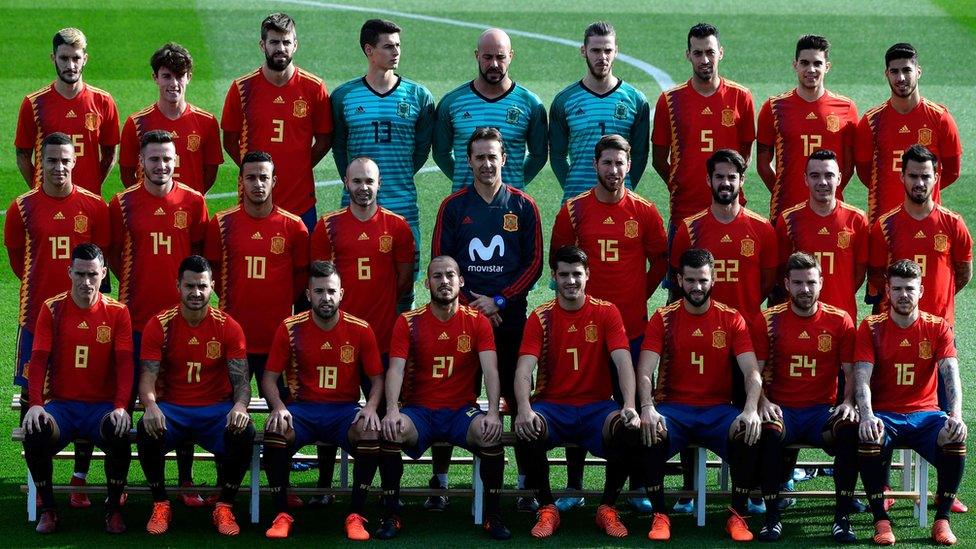Catalan crisis: Spain's Rajoy vows to end 'separatist havoc'
- Published
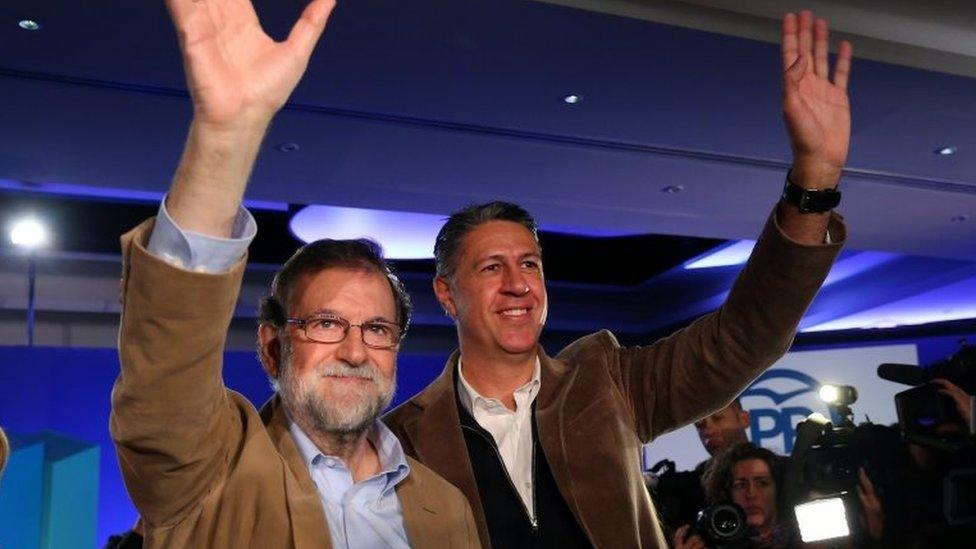
PM Mariano Rajoy (L) joined the leader of his PP party in Catalonia for campaigning on Sunday
Spanish Prime Minister Mariano Rajoy has said regional elections next month in Catalonia will help end "separatist havoc" in the north-eastern region.
He addressed a campaign event on his first visit there since imposing direct rule on the region a fortnight ago.
Defending his decision in Barcelona, he said he had "exhausted all roads" after the Catalan government's unilateral declaration of independence last month.
Several key Catalan leaders are currently being detained over the move.
Some 750,000 people protested in Barcelona on Saturday against the arrests, local police estimated.
The crisis was sparked by a disputed referendum held in Catalonia in October, which had been declared illegal by the Spanish courts.
Catalan officials said the independence campaign won 92% of the vote, from a turnout of 43%. Many of those who were against independence did not cast votes, refusing to recognise the legitimacy of the referendum.
The Catalan government subsequently declared independence. In response, the Spanish government dissolved the region's parliament, imposed direct rule and called a snap regional election on 21 December.
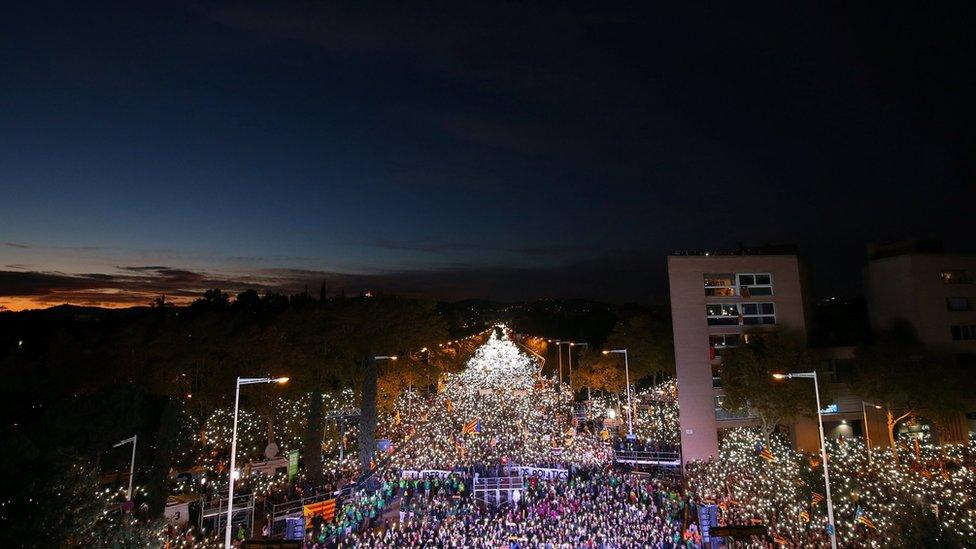
Protesters shone their mobile phone torches during Saturday's rally in Barcelona
Speaking at a campaign event in Barcelona for his Popular Party (PP) on Sunday, Mr Rajoy called on the participation of the "silent majority" to "convert their voice into a vote".
"We must reclaim Catalonia from the havoc of separatism," he added, saying: "With democracy, we want to reclaim Catalonia for everyone."
He told PP supporters that the right result would boost Spain's economic growth next year to above 3%.
He called on companies not to leave the region, after hundreds of firms moved their headquarters away amid uncertainty over the region - which accounts for a fifth of Spain's economy. He also urged people in Spain to continue buying Catalan products.

Rajoy's message to the faithful
By James Reynolds in Barcelona
For a short while, the man who ultimately runs Catalonia was in Catalonia. But Mariano Rajoy's advisors made sure he would not run into vocal pro-independence opponents.
Instead, he spoke to the party faithful. Mr Rajoy's main campaign event was held inside a hotel ballroom, in front of mostly older supporters.
Spain's prime minister came here in order to win the regional Catalan election he's called for 21 December. His People's Party doesn't command widespread support in this region.
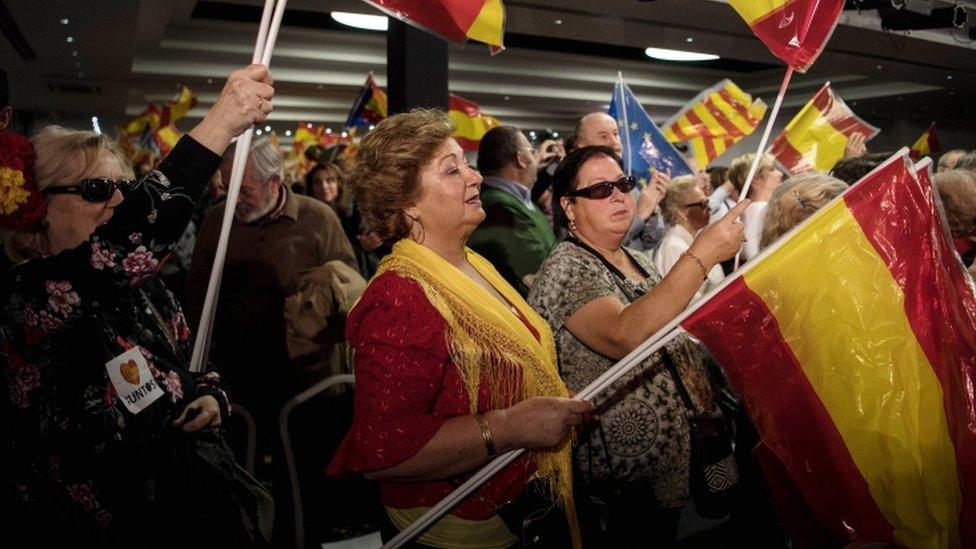
Mr Rajoy's supporters waved flags left for them on their seats
But the pro-Spain movement as a whole makes up about half the population of Catalonia. An election victory for this sector would make it much harder for pro-independence forces to make another attempt to break away from Spain.
After speaking for 25 minutes, Mr Rajoy posed for pictures and made his way out of the hotel amid a crush of supporters.
"Will you meet your opponents?" I asked him. "Yes," he said. But he didn't say where or when.

Since the crackdown by Madrid, Catalonia's sacked President Carles Puigdemont has gone into self-imposed exile in Belgium, and many of his top allies have been remanded in custody.
Thousands took to the streets of Barcelona on Saturday calling on Spain to free the ministers, as well as two grassroots campaign leaders being detained.
They marched behind a banner declaring "We are a republic", and carried placards that said the detainees were political prisoners.
The sacked former ministers are accused of alleged rebellion and sedition, while the two activists were arrested over a mass protest before the referendum.
Here's what protesters in Catalonia are singing about
The left-wing ERC party, a key ally of Mr Puigdemont, has announced that some of the prisoners, including party leader Oriol Junqueras, as well as some of the sacked ministers who also went to Belgium, will stand on its electoral list.
However, the ERC has rejected a call from Mr Puigdemont to fight the election as part of a single pro-independence bloc with other parties - as they did in 2015.
Mr Rajoy's PP won just 8.5% of the vote in the last regional elections two years ago.
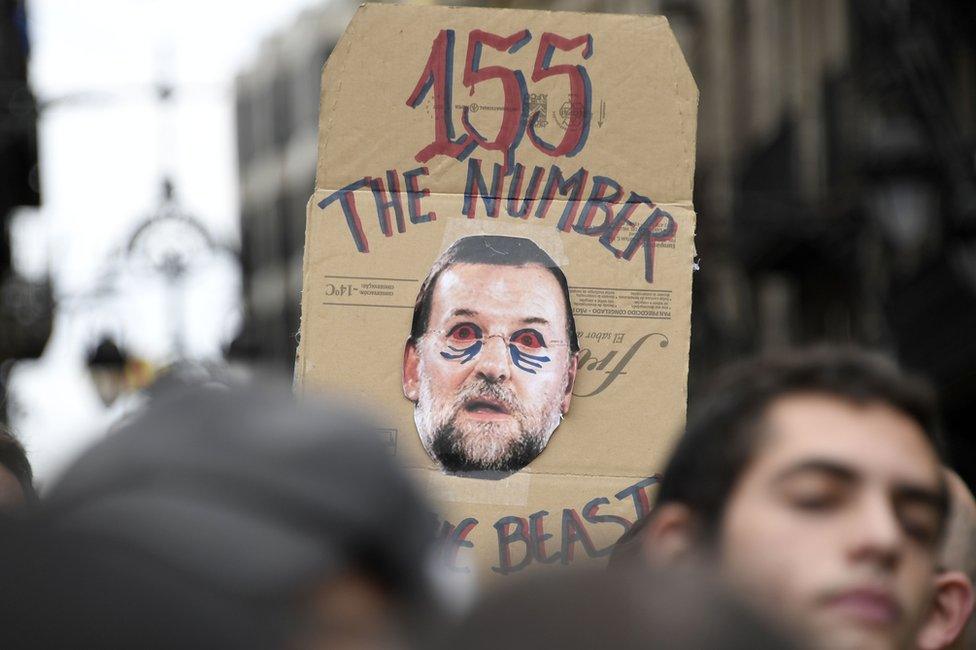
Mr Rajoy was mocked as the Devil on this recent placard in Barcelona
In another development, the mayor of Barcelona, Ada Colau, condemned Catalonia's pro-independence leaders.
Ms Colau, who was elected in 2015 on an anti-capitalist platform and whose party is standing in the regional parliamentary election for the first time, said leaders of the independence movement had "tricked the population for their own interests".
However, her party has also voted to break a pact with the Socialist party in Barcelona in protest at its support for the national government's decision to invoke Article 155 of the constitution, imposing direct rule on Catalonia.
- Published8 November 2017
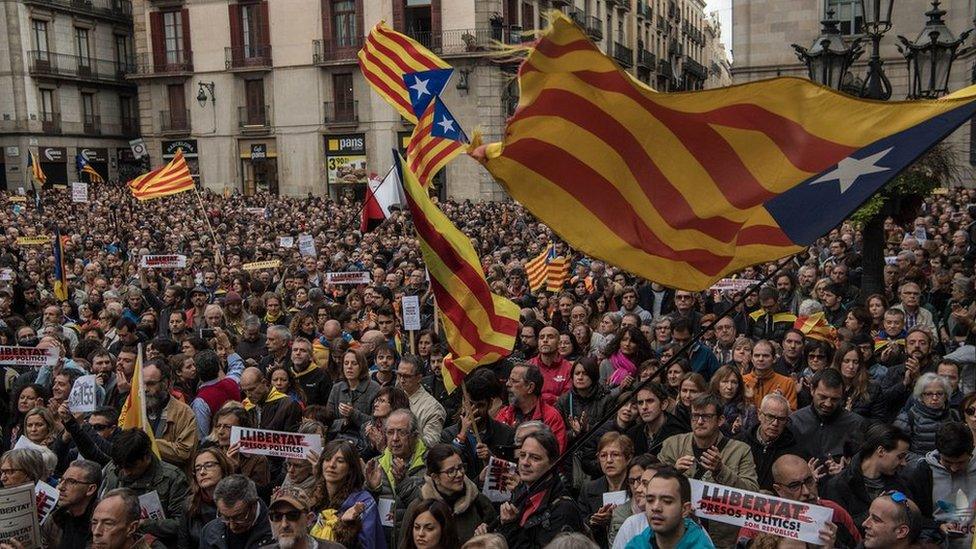
- Published9 November 2017
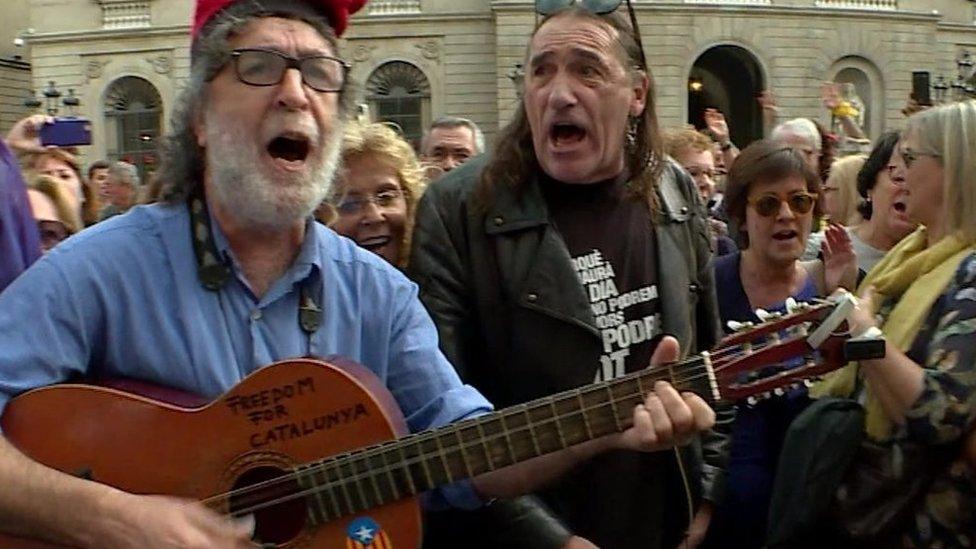
- Published26 March 2018
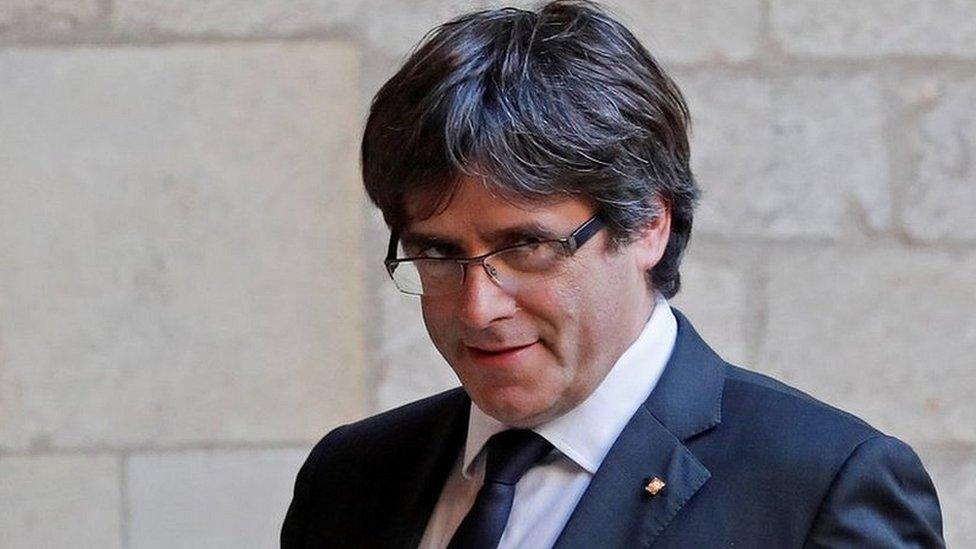
- Published22 December 2017
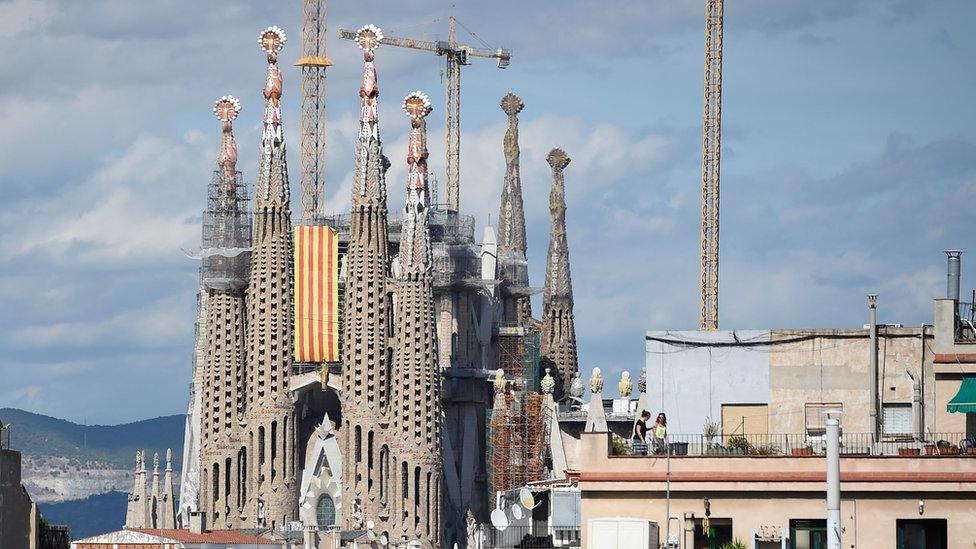
- Published8 November 2017
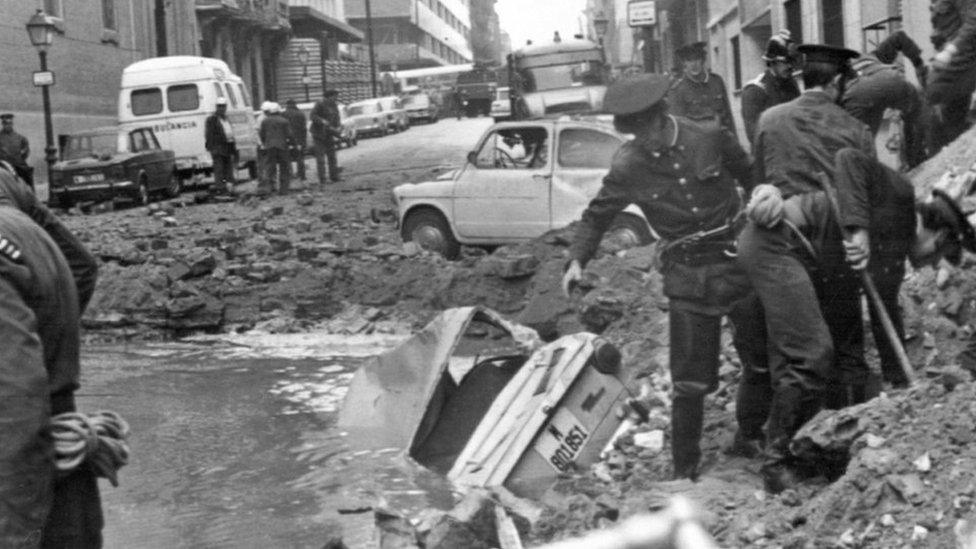
- Published8 November 2017
